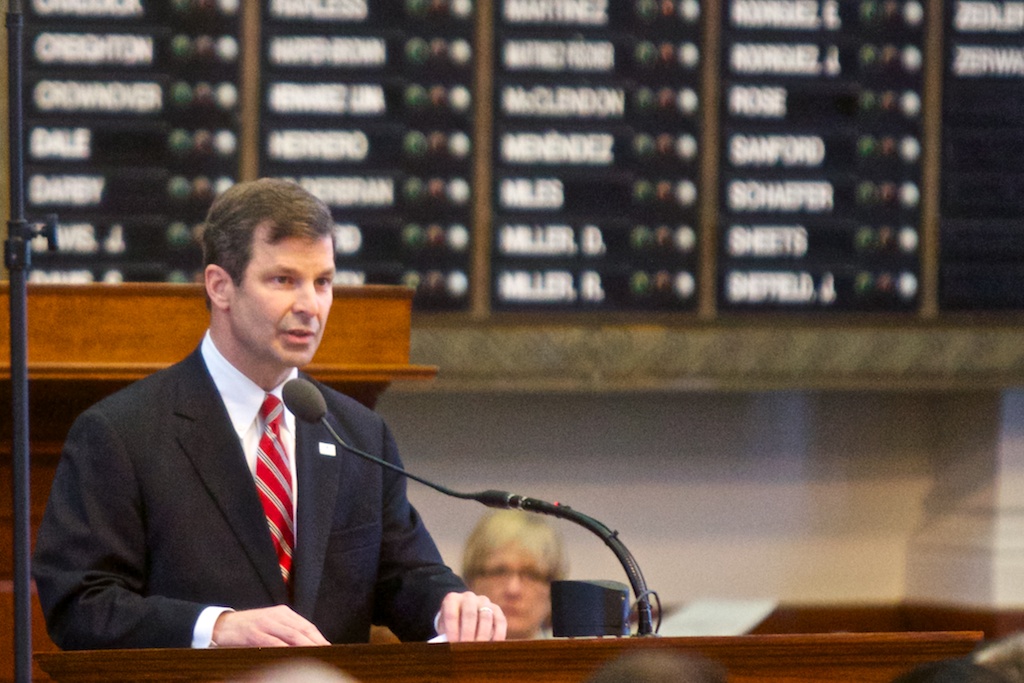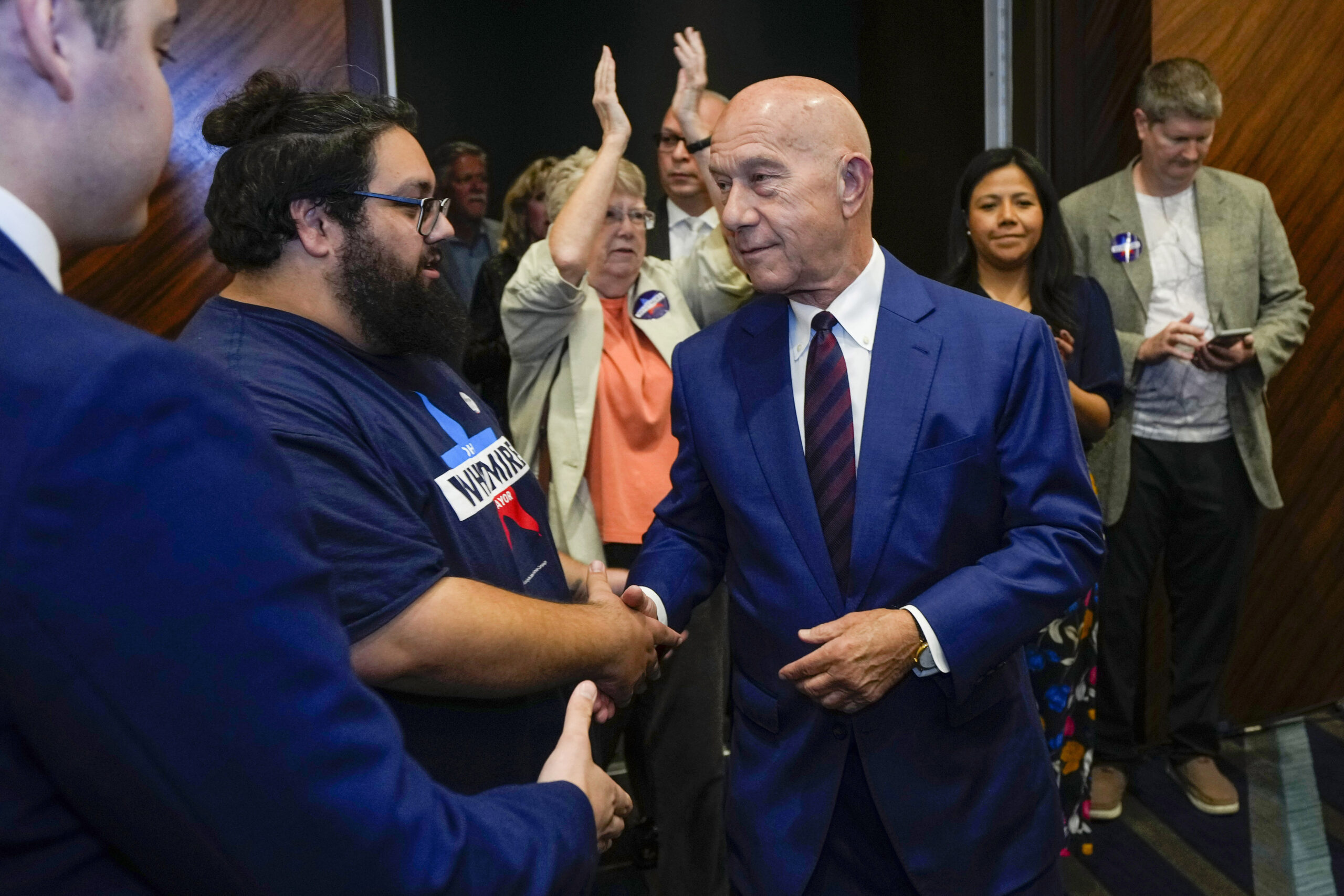
Senate Moves to Decriminalize School Truancy
Above: Sen. John Whitmire (D-Houston) advocating for school truancy decriminalization.
After almost two hours of debate, a several-hour postponement and some backroom deal-making, the Senate passed a bill designed to decriminalize school truancy. Senate Bill 106 by Sen. John Whitmire (D-Houston) passed on a 26-5 vote.
Whitmire said current state truancy law unfairly punishes poor children and criminalizes hardship.
“No school should make a criminal charge out of a hardship of somebody that’s going through a divorce, or a 14-year-old that has no maternity clothes so she can’t go to school,” Whitmire said.
Under his legislation, Whitmire said school administrators and judges would have all the same tools they have now to try to ensure kids are not skipping school. The difference, he argued, is there would be no criminal charge to follow a young person around for the rest of their life.
Texas is one of only two states—the other is Wyoming—that employ the criminal justice system to punish truancy. The Texas Education Code, the body of law that regulates the activity of all educational institutions in the state, empowers schools districts to file a criminal complaint against a child as young as 12 who has missed three days of school in four weeks without an excuse or has accumulated 10 unexcused absences in six months.
The charge is known as “Failure to Attend School,” a Class C misdemeanor that can carry up to $500 in fines and leave an indelible mark on the child’s record.
In 2013, Texas prosecuted more than twice as many school truancy cases as all the other states combined, according to a report from Texas Appleseed. Truancy laws disproportionately affect minority children, disabled students and the economically disadvantaged and advocates say the laws contribute to the so-called school-to-prison pipeline.
Morgan Craven, a staff attorney for Texas Appleseed’s School-to-Prison Pipeline Project, told the Observer that punitive truancy laws aren’t useful in solving the problem.
“Research and data show that these so-called hammers are not effective,” Craven said. “I’ll give you a few examples of what I can imagine these judges are talking about when they say, ‘Don’t take the hammer away from us.’ They are talking about the ability to saddle a kid with a criminal record. The ability to charge kids and parents with up to $500 in fines. The ability to arrest and jail a kid for three days if they are unable to pay those fines, and they can be held in contempt, arrested and jailed.”
Sen. Van Taylor (R-Plano) and Sen. Larry Taylor (R-Friendswood) offered the most vociferous objections to Whitmire’s bill.
“The superintendents in my district have contacted me and expressed concerns that this bill not only removes a tool for a school to compel attendance and avoid truant behavior, but also imposes additional steps and requirements,” Taylor said.
According to an exposé published by The Atlantic, school truancy is big business in Texas. Each year Texas truancy courts collect millions of dollars in fines. Truancy fines in Dallas County alone totaled almost $3 million in 2012.
Whitmire vehemently disagreed with his bill’s opponents.
“I can’t overemphasize what a big problem this is,” Whitmire said. “There is no reason to write children a ticket for missing school and make them a criminal.”
In the House, several truancy bills were heard last month in the juvenile justice committee but none have been voted out.
Rep. James White (R-Hillister) said House members are still in discussions.
“There are different scenarios of how this could play out,” said White. “There could be a scenario where we all get together and there is one big bill per se or it could be a number of bills that will come forward.”
SB 106 bill now moves to the House for consideration.


